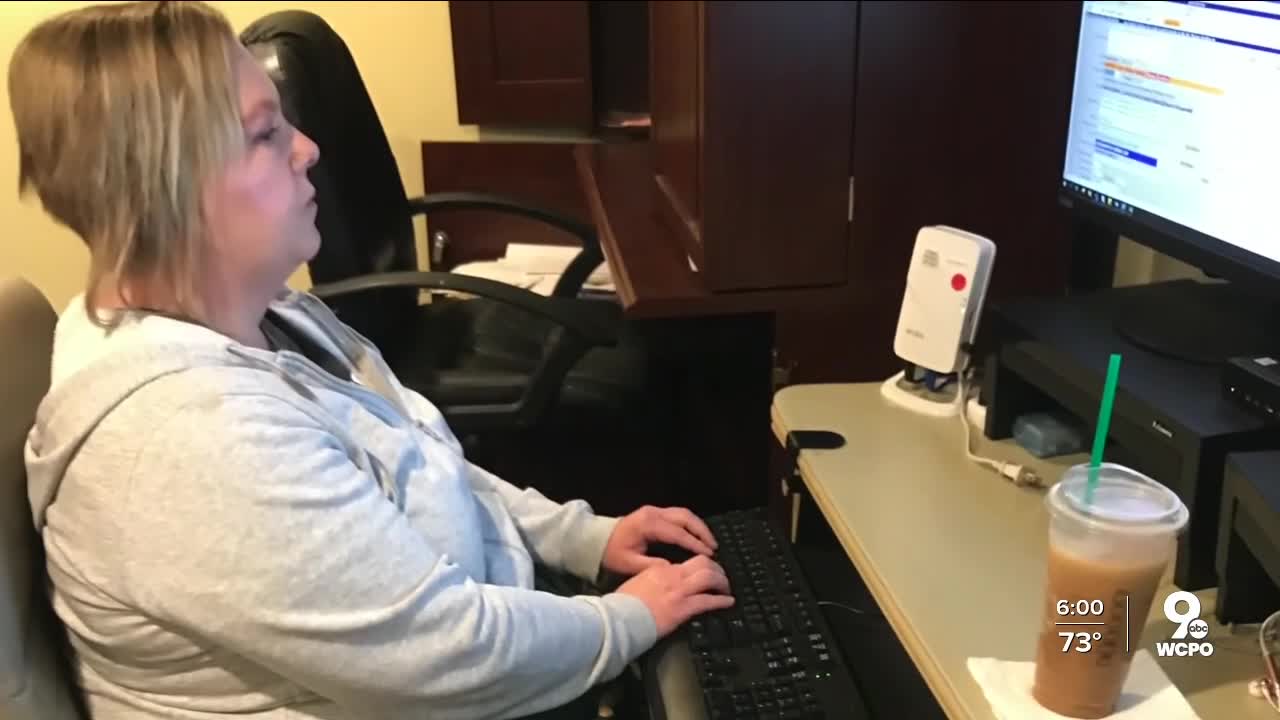For many, it is impossible to imagine knowing someone in their mid-20s growing up without reliable internet.
But they are out there — and not too far away from downtown Cincinnati either.
"I don't even hardly get any cellular service out there where I live either," said Jamie Burton, a rural Butler County resident.
Burton is one of the thousands of rural Ohio residents who lack reliable high-speed internet access from either cellular or cable company providers.
Some would say Burton is lucky in one regard: She "only" has to commute 30 minutes every weekday to use her mother's internet so she can log in for her work-from-home job.
"It's not even a quarter of a mile away from my home that they have Spectrum service," Burton said. "I have contacted them numerous times and was told I'm too far from the service site to connect my house."
Predicaments like Burton's have many people worried that people, especially children, will continue to fall further behind their peers in education. It also worries some that, as those children grow, they will move away from their rural communities for better internet options.
That concern is a significant reason why Ohio Gov. Mike DeWine signed the bipartisan "Bill 2" in Middletown in May. Ohio's legislators designed the law to provide high-speed internet access to rural parts of the state. The bill launched with $20 million in state funds to start, with plans to secure up to $200 million more in future funding.
RELATED: DeWine visits Middletown to sign affordable internet access bill
When DeWine signed the bill, Burton hoped that her address would quickly be added to a list of addresses given new access to high-speed service for as little as $15 a month.
That's not been the case. As a result, others in Burton's situation are starting to doubt that the program "Bill 2" is supposed to support will ever come to full fruition.
Pamela Shanklin, a mother of two 20-something-year-olds and a Williamsburg resident, said her internet access was deplorable for her children's entire life.
"We have none unless you count our phones," Shanklin said.
Shanklin's household uses DirecTV for cable, but Spectrum was the only company offering internet in her area. When she asked the company about its high-speed internet service, Shanklin said she had sticker shock.
"They wanted $14,610 to run the cables back to my house," she said. "I asked them...I was like, 'If I put it in and I pay for it, do I own it?'"
Shanklin said not only was she told no, she would not own the line, but anybody else could then tie into her line for service.
Some of Shanklin's cable-connected neighbors in her community live less than 500 feet off the main road. However, Shanklin's family's 11-acre home for three generations is 2,200 feet away.
"How's that fair?" Shanklin said.
Spectrum declined an interview for this story, but a source within the company told WCPO that "there are times, for one reason or another, cost keeps service from some customers because providing it just is not feasible. Several factors determine accessibility including the distance from our existing network, terrain, access to poles, composition of the soil and other factors."
Even with the bill DeWine signed into law — plus an additional $106 million available federally to expand rural access to high-speed internet — many believe there still isn't enough money for building out the rural network.
"It's worrisome," Shanklin said. "My kids aren't going to want to live here if they don't have the ability to get online."
One of Shanklin's sons currently uses a combination of cell phone service and a laptop to file stories for his job as a local sports reporter.
"I mean, I can't," Garth Shanklin said. "It's really difficult to do my job without the internet."
And while Ohio has launched a few pilot programs for the state's rural high-speed initiative since May, Pamela Shanklin and Jamie Burton are both left wondering when they'll be able to log online and surf the internet like so many of their neighbors.
"But I'm wondering, like, what's the hold-up? I don't understand," Burton said.




